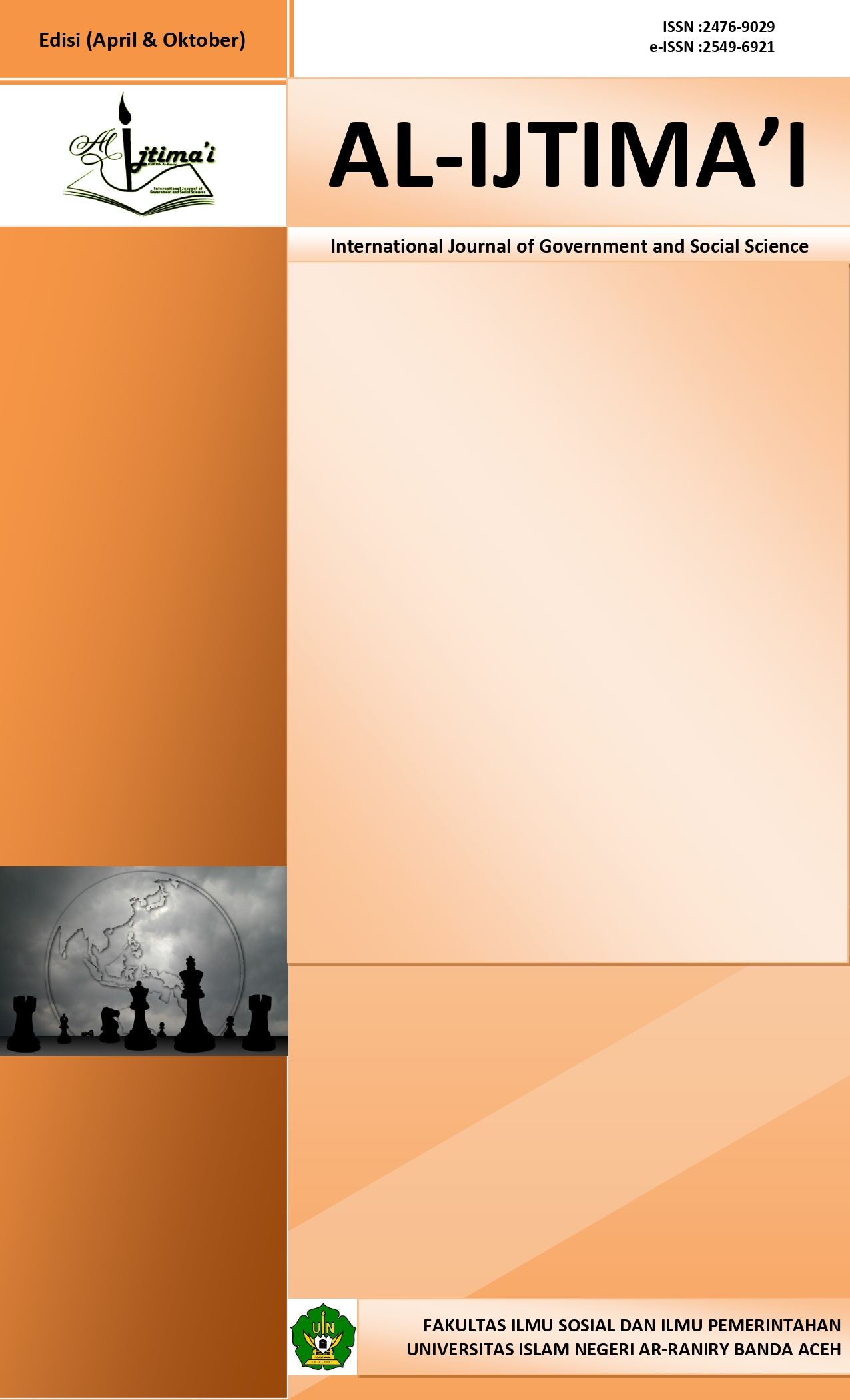Analisis Penerapan Kebijakan Smart city di Negara ASEAN: Studi Komparasi Malaysia, Thailand, dan Indonesia
DOI:
https://doi.org/10.22373/jai.v10i2.7576Keywords:
smart city, ASEAN, Implementasi Kebijakan, Malaysia, Thailand, IndonesiaAbstract
Kemajuan Teknologi Informasi dan Komunikasi (TIK) dalam dua dekade terakhir menjadi fokus global sebagai kesempatan untuk meningkatkan kualitas layanan publik. Dengan memanfaatkan TIK, pemerintah dapat meningkatkan efisiensi, kecepatan, dan kenyamanan dalam pengelolaan pelayanan. Implementasi kota pintar di negara-negara ASEAN telah membawa perubahan signifikan pada manajemen kota, keberlanjutan, dan keterlibatan masyarakat. Penerapan konsep smart city di Malaysia, Thailand dan Indonesia berpotensi meningkatkan kualitas hidup masyarakat dan efisiensi pengelolaan kota. Penelitian ini bertujuan untuk mengetahui penerapan kebijakan ke negara-negara ASEAN yang berfokus pada Malaysia, Indonesia dan Thailand. Dalam studi ini, penulis menggunakan metode kualitatif, yang menghasilkan data deskriptif menggunakan pendekatan Systematic Literature Review (SLR). Hasil penelitian yang merupakan implementasi smart city di ketiga negara ini telah menunjukkan upaya dari 6 dimensi smart city meskipun prestasinya beragam. Dari Malaysia dan Thailand, hal ini dapat digunakan sebagai solusi bagi Indonesia dalam mengembangkan kota-kota pintar di kota-kota besar .
References
Atsushi Koresawa, P. N. (2023). Smart City Development in Thailand: Progress and Challenges. Proceedings of the 19th Conference of International Development and Urban Planning. https://doi.org/10.31857/s013116462104007x
Bach, K. H. V., & Kim, S.-K. (2019). Developing Smart City: Based on the Assessment of Smart Projects in Medium-Size Cities, Vietnam. American Scientific Research Journal for Engineering, Technology, and Sciences, 56(1), 38–49. http://asrjetsjournal.org/index.php/American_Scientific_Journal/article/view/4879
Carboni, S. (2024). Smart Cities in comparison: An analysis of the best Smart Cities. Smart Cities and Regional Development (SCRD) Journal, 8(3), 65–78. https://doi.org/10.25019/fh5e2408
Cheevapattananuwong, P., Baldwin, C., & Lathouras, A. (2022). Potential Impacts of the Economic Development Plan: A Case Study of the Eastern Economic Corridor (EEC) Plan in Chachoengsao Province, Thailand. National Graduate Research Conference, December.
Demirel, D. (2023). The Impact of Managing Diversity on Building the Smart City A Comparison of Smart City Strategies: Cases From Europe, America, and Asia. SAGE Open, 13(3), 1–18. https://doi.org/10.1177/21582440231184971
Evers, H.-D. E., & Nordin, R. (2012). The Symbolic Universe of Cyberjaya, Malaysia. SSRN Electronic Journal, November. https://doi.org/10.2139/ssrn.2080408
Firmansyah, H. S., Supangkat, S., Arman, A. A., & Giabbanelli, P. (2019). Identifying the Components and Interrelationships of Smart Cities in Indonesia: Supporting Policymaking via Fuzzy Cognitive Systems. https://doi.org/10.1109/ACCESS.2019.2908622
Freddy Febriansah, Alvin Jonathan, Jeany Farera Putri Laura, A. S. C. (2025). Smart City Di Singapura Dan Di Indonesia Dalam Konsep Perbandingan E- Goverment. Journal of Governance and Public Administration (JoGaPA), 2(2).
Irvine, K. N., Suwanarit, A., Likitswat, F., Srilertchaipanij, H., Ingegno, M., Kaewlai, P., Boonkam, P., Tontisirin, N., Sahavacharin, A., Wongwatcharapaiboon, J., & Janpathompong, S. (2022). Smart City Thailand: Visioning and Design to Enhance Sustainability, Resiliency, and Community Wellbeing. Urban Science, 6(1), 1–36. https://doi.org/10.3390/urbansci6010007
Ismawati, I., & Hartati, A. Y. (2021). Pengembangan Kerjasama Asean Melalui Asean Smart Cities Network (Ascn). Spektrum, 19(1), 38–59. https://doi.org/10.31942/spektrum.v19i1.5627
Jones, C., & Pimdee, P. (2018). Innovative Ideas: Thailand 4.0 and the Fourth Industrial Revolution. Tạp Chí Nghiên Cứu Dân Tộc, 17(22), 4–32. https://doi.org/10.25073/0866-773x/124
Julian Higgins, S. G. (2008). Cochrane handbook for Systematic Reviews of Interventions. In IEEE International Symposium on Information Theory - Proceedings. https://doi.org/10.1109/ISIT.2017.8006970
KPKT. (2019). Launching of malaysia smart city framework. September, 4–5.
Mahayani, N. M. H. (2024). Evaluasi Implementasi Smart City Di Indonesia: Tantangan Teknologi Dan Keberlanjutan. Governance Jurnal Ilmiah Kajian Politik Lokal Dan Pembangunan, 10(4).
Malaysian Government. (2023). Employment Act 1955 (Act 265). 14(January), 1–127.
Mekhum, W. (2020). Smart Cities: Impact Of Renewable Energy Consumption, Information And Communication Technologies And E-Governance On Co2 Emission. https://doi.org/10.9770/JSSI.2020.9.3(5)
Meltwater. (2023). Digital 2023 Global Review Report. 213.
Mergel, I., Edelmann, N., & Haug, N. (2019). Defining digital transformation: Results from expert interviews. Government Information Quarterly, 36(4). https://doi.org/https://doi.org/10.1016/j.giq.2019.06.002
Phuthong, T. (2022). Factors that influence cloud adoption in the public sector: The case of an emerging economy—Thailand. Cogent Business and Management, 9(1), 1–28. https://doi.org/10.1080/23311975.2021.2020202
Sakuraba, Massaki, N. U. (2022). Smart City Indicators in ASEAN Cities.
Samsudin, N. A., Rosley, M. S. F., Lai, L. Y., Omar, S. R., Rashid, M. F., Hanifi, N. S. N. M., & Bakhtiar, I. S. (2022). A comparative study of smart city initiatives in Malaysia: Putrajaya and Iskandar Puteri. Planning Malaysia, 20(PG-). NS -
Shin, H. B. (2019). Asian Urbanism. In The Wiley-Blackwell Encyclopedia of Urban and Regional Studies.
Simatupang, S., Pengajar, S., Arsitektur, J., Kristen, U., & Sutoyo, M. (2015). Smart City : Kerangka Untuk Pengembangan. Scale, 3(1), 371–381. http://repository.uki.ac.id/487/%0Ahttp://repository.uki.ac.id/487/1/6. Sahala Simatupang.pdf
Wicaksono, B., Asta, R., & Rafi, M. (2021). Comparative Study: Dimension Policy of Smart People in Metropolitan City of Bandung, Jakarta, and Pekanbaru. https://doi.org/10.21787/JPB.13.2021.93-103
Downloads
Published
How to Cite
Issue
Section
License
Copyright (c) 2024 Al-Ijtima`i: International Journal of Government and Social Science

This work is licensed under a Creative Commons Attribution-ShareAlike 4.0 International License.
Authors who publish with this journal agree to the following terms:
- Authors retain copyright and grant the journal right of first publication with the work simultaneously licensed under a Creative Commons Attribution License (CC-BY-SA) that allows others to share the work with an acknowledgment of the work's authorship and initial publication in this journal (See The Effect of Open Access);
- Authors are permitted and encouraged to post their work online (e.g., in institutional repositories or on their website) prior to and during the submission process, as it can lead to productive exchanges, as well as earlier and greater citation of published work;
- Authors are able to enter into separate, additional contractual arrangements for the non-exclusive distribution of the journal's published version of the work (e.g., post it to an institutional repository or publish it in a book), with an acknowledgment of its initial publication in this journal.















